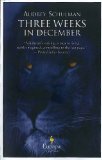Summary | Excerpt | Reviews | Beyond the Book | Readalikes | Genres & Themes | Author Bio

" - No tribes are involved. No people at all," Roswell interrupted.
"This vine, it grows several thousand feet up in the
mountains, in a national park."
This caught her for a moment. She turned the fact over in her
mind, examining it. "Where'd you... Who found the vine?"
"Gorillas."
"Excuse me?"
"Mountain gorillas."
"Look," said Stevens. "Jaguars were the ones to first use
quinine, gnawing on bark from a cinchona tree whenever they
had malaria. Pigeons discovered the power of coffee beans.
For thousands of years humans have learned about drugs from
watching other animals. Primates are especially sophisticated at
botanical pharmacology. Female muriqui monkeys, for example,
utilize over forty plants for everything from parasite control
to contraceptives."
Max said, "Contraceptives?"
"During famines, the females consume a plant that's high in
a progesterone-mimicking compound so they won't waste
energy on pregnancy."
"Damn."
"Can we get back to the subject here?" Roswell used shorter
sentences, a sort of staccato delivery. "Dubois is her name. The
person who sent in the vine. She's French. A primatologist
working with gorillas in the Rwandan mountains. She noticed
the adult males would crush leaves of the vine in their mouths,
then spit them out. Got curious about possible bioactive properties.
Sent a sample to her college roommate who's a chemist."
"A chemist who happens to work for us," Stevens said.
Roswell continued, "We know gorillas are genetically prone
to heart disease. Among the males in captivity, it's the biggest
killer. Half the great apes you see at the zoo are on Lipitor."
Stevens held up one finger, waiting for the pause. He was
proud of this next bit of information. "Contrast those gorillas
with the ones in the mountains where this vine grows. The area
happens to be where Dian Fossey set up her research station in
the 1960s. For the decades since then, scientists have been
doing postmortems on every dead gorilla they've found in the
area, recording the results." He added, "No sign of heart disease.
Ever. No myocardial infarctions, no dilated cardiomyopathy,
nada. Even in the ones that die of old age."
Roswell said, each word slow and enunciated. "This vine
might be why."
"Fuck." Fricatives so satisfying. "Fuck." On bad days she
used to not be able to stop her swearing. Now she used it as a
control valve, letting off steam when necessary. Done this way,
it sounded almost the way others swore.
The men went still. They were surprised, but not necessarily
displeased.
Max closed her eyes, breathing, concentrating on finding
errors in their logic. "Gorillas are a different species. What
works on them might not..."
"You ever talk to a vet specializing in great apes? They fill
the prescriptions at CVS. The only difference is dosage."
Max said, "The primatologist? What about her?"
"Dubois?"
"Yes, she found it. She's got a prior claim."
"Well, about her, there are pluses and minuses." Stevens
chose his words with care. "She did sign away her claim."
"A big plus," said Roswell.
"She signed in exchange for us paying for park guards to
patrol the mountains for the next decade. I guess hunters in
the area tend to kill the gorillas. She's a big softie about the
apes."
Roswell said, "Paying for the guards works for us. We'll be
protecting the world's remaining mountain gorillas. The advertising
department will love it."
"And the minuses with her?" asked Max.
"She won't send us more of the vine or show us where she
found it."
"Why not?"
"God knows," Stevens said. "She's weird."
"Dr. Tombay, listen." Roswell thumped his finger on the
arm of his chair as methodically as a metronome, beating out a
rhythm to his words. "Because we're paying for the guards,"
thump, "she'll let you stay at the research station." Thump. "You can search as long as you want." Thump. "She thinks no one can find the vine."
Excerpted from Three Weeks in December by Audrey Schulman. Copyright © 2012 by Audrey Schulman. Excerpted by permission of Europa Editions. All rights reserved. No part of this excerpt may be reproduced or reprinted without permission in writing from the publisher.
Your guide toexceptional books
BookBrowse seeks out and recommends the best in contemporary fiction and nonfiction—books that not only engage and entertain but also deepen our understanding of ourselves and the world around us.